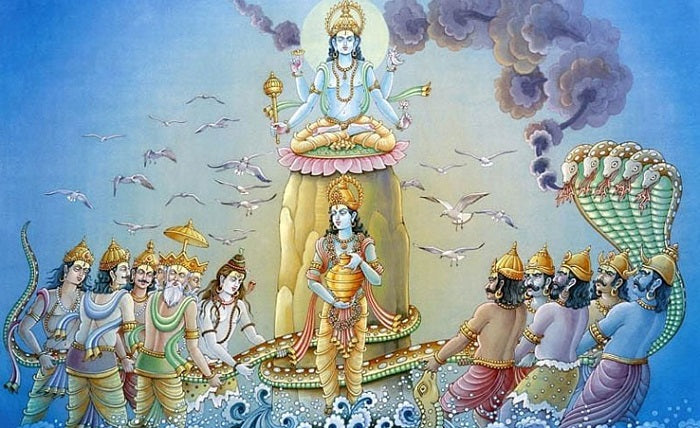
Unraveling the Enigma: Why Sanskrit, the Oldest Language, is Considered the Most Advanced
Introduction
Language is an incredible human invention, serving as a medium of communication, expression, and culture. Among the multitude of languages that have emerged and evolved throughout history, Sanskrit, the ancient language of the Indian subcontinent, stands apart as a linguistic marvel. Renowned for its rich vocabulary, intricate grammar, and profound philosophical literature, Sanskrit has captivated scholars and linguists for centuries. In this article, we delve into the reasons why Sanskrit is widely regarded as the most advanced and sophisticated language ever to grace human civilization.

- The Complexity of Grammar
One of the striking aspects of Sanskrit is its highly intricate and well-structured grammar. Panini, a celebrated ancient Sanskrit grammarian, composed the "Ashtadhyayi," a comprehensive treatise on Sanskrit grammar. This magnum opus laid down an exhaustive set of rules that govern the language. Sanskrit grammar is characterized by its intricate system of declensions, conjugations, and derivations, enabling precision and flexibility in expressing ideas. The language possesses an impressive array of verb forms, noun cases, and grammatical rules, surpassing the complexity of any other known language.

- Root-Based Structure
Sanskrit's unique feature lies in its root-based structure. The language consists of a vast array of root words known as "Dhatu," which capture the essence of meaning and action. These roots can be combined with various prefixes and suffixes to form an extensive vocabulary with nuanced expressions. The roots provide a strong foundation for constructing complex words and allow for a deep exploration of different shades of meaning.

- Phonetics and Sound System
Sanskrit boasts a remarkable phonetic system that is both systematic and precise. It comprises 49 primary phonemes, each representing a specific sound. The script, known as Devanagari, beautifully captures the phonetic nuances. The language pays meticulous attention to the correct pronunciation of words, as each phoneme has its own significance. This phonetic precision enables precise articulation and enhances the clarity of communication, making Sanskrit a powerful language for oral and written expression.

- Intricate Vocabulary
Sanskrit's vocabulary is vast and profound, with an abundance of synonyms, metaphors, and shades of meaning. It possesses an extensive lexicon, enriched by its ability to form compound words. The language exhibits a remarkable ability to create new words by combining roots, prefixes, and suffixes. This feature allows Sanskrit to adapt to changing contexts and expand its vocabulary, making it a language that can effortlessly express abstract and complex ideas.

- Scientific and Mathematical Lexicon
Sanskrit's significance extends beyond linguistic aesthetics; it encompasses a comprehensive scientific and mathematical lexicon. Ancient Sanskrit texts, such as the Vedas and Upanishads, contain profound insights into various disciplines, including mathematics, astronomy, physics, and medicine. The precise and meticulous nature of Sanskrit facilitates the articulation of scientific concepts with remarkable accuracy. Scholars argue that the mathematical precision and logical reasoning ingrained in the language have contributed to the advancements made by ancient Indian scientists and philosophers.

- Literary and Philosophical Heritage
Sanskrit's contribution to world literature and philosophy is unparalleled. The ancient Indian texts, such as the Mahabharata, Ramayana, Bhagavad Gita, and Upanishads, were composed in Sanskrit. These timeless works encompass a wide range of subjects, including mythology, ethics, spirituality, and social values. The language's ability to express complex metaphysical and philosophical concepts with precision and eloquence is a testament to its sophistication and depth.

- Pan-Indian and Pan-Historical Appeal
Sanskrit's influence extends beyond the Indian subcontinent, with traces of its impact found in several Asian languages. The roots of many languages, including Hindi, Bengali, Marathi, and Nepali, can be traced back to Sanskrit. Moreover, Sanskrit has served as a lingua franca for centuries, facilitating intellectual and cultural exchange across regions and epochs. The timeless appeal of Sanskrit lies in its ability to transcend geographical and temporal boundaries, making it a language of universal significance.

Conclusion
Sanskrit, the oldest language known to humanity, has captivated scholars and enthusiasts for millennia. Its inherent complexity, root-based structure, phonetic precision, rich vocabulary, and profound literary and philosophical heritage make it an extraordinary linguistic creation. Sanskrit's enduring legacy lies not only in its contribution to the cultural and intellectual heritage of India but also in its potential to inspire and enrich human understanding across borders. The study and preservation of Sanskrit offer an opportunity to delve into the depths of human expression and unravel the intricacies of language itself.
By Manshi Singh
(The images used in this blog post are not owned by Anime Devta, they are just to help the readers)

